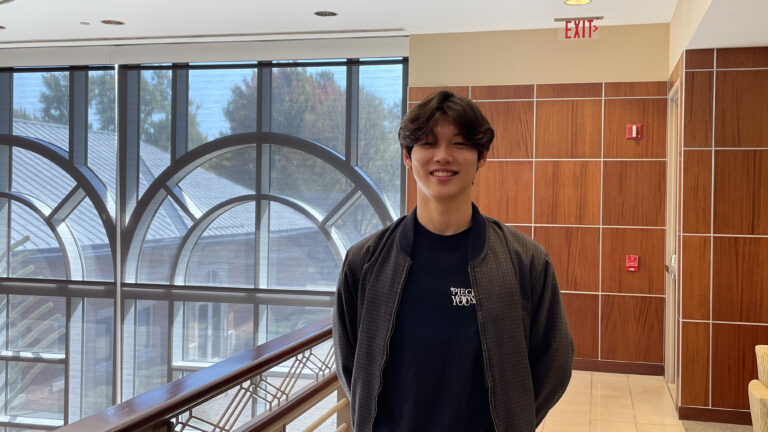Prior to high school and as a freshman, Robert Gao was really into math. He dabbled in math competitions, like the AMC and Math Counts.
It made sense because Gao comes from a family of doctors: His father is an internal medicine physician, and his sister and brother-in-law are both medical residents.
When the COVID-19 pandemic hit, everything changed. That’s when Gao discovered his passion for the literary arts.
“I noticed that in the wake of the COVID-19 pandemic, there was a lot of anti-Asian sentiment going around and I began writing journalistic articles about Asian hate and ways to prevent it and ways to address it,” Gao said. “And amid that process, I discovered a love for the poetic arts, as it became a way to sort of put my soul onto the paper in a way that nonfiction writing couldn’t.”
Gao, a senior at the University Laboratory High School in Urbana, is now being honored for his passion for poetry. He was recently selected — out of thousands of teens across the nation — as one of the five 2024 National Student Poets — the country’s highest honor for youth poets.
Previously, Gao has been recognized by the New York Times, and several organizations, including the National Young Arts Foundation and the Alliance for Young Writers.
Since his passion for poetry sets him apart from his family members in STEM fields, he said he can feel a little out of place, especially as he’s filling out college applications.
“I have doubts when I check the English box as a major,” Gao said. “And I think a large part of that doubt is due to this Asian-rooted intention to want to pursue something in a financially stable career path.”
But whenever such doubts creep up, Gao said he reminds himself that college is a time to explore.
“To comfort myself… I tell myself writing will be part of my life for the rest of my life, and I don’t need to set myself to a predetermined career just yet,” he said. “I have so many years in front of me and so many years for additional exploration.”
Gao said receiving the National Student Poet award means a lot to him.
“When I first received the honor, I was more than elated, but I felt more validated in my writing than I have ever felt in my high school career,” he said.
Despite his conspicuous talent in literature, Gao said he also confronts challenges.
“What oftentimes limits us is our creative capacity to exert our thoughts onto paper and into words,” Gao said. “While we do have consciousness that are oftentimes defined by a large amount of creative ideas, it is sometimes hard to… articulate that into literary writing.”
Looking ahead, Gao said he hopes to write novels and poetry chapbooks. When it comes to novels, he said he tends to gravitate toward fiction as he is in love with the idea of metaphor.
“I believe that metaphor is the literary manifestation of the soul and there is so much room to innovate and so much room to inject your own complexities in your own identity,” Gao said. “And so I would like to write a fiction piece with details taken from my life and from people close to me, like my mother and my father, who have grown up in China, and I would love to transfer some of their spirit into my own writing some day.”
The following is a poem written by Robert Gao:
河水 / Riverwater
Nanjing Massacre, 1937
a river for the forgotten. The Qinhuai runs red today, a sergeant
standing guard as streetboys rupture to crimson all kissing dirt—
half-winged, gunpowder dolls. Of the thousand tales I have been told,
only one ends with rifles lodged in heartbeats, jaded knives carving
an elegy for tongues. Every echo I confuse for a scream. In myth
name becomes synonymous with promise—spectral enough to trap
bodies in rigor mortis, calligraph flesh into the afterlife. Know that
death is the prosperity of tomorrow—a vow I baptize in my mother
tongue. How persimmon falls lovelier when there are corpses
to cling to. How katanas can bite through anything, tear nations
to bone until we crumble into the shape of their names. Riverwater
red with revolution—irrigate my hands, make me a ghost, acidic cadavers
in place of a flag. Silver the skies with lotus, until only storms
become all we know. On nights like these, I grieve the streetboys
by the shape of their bodies: forgotten like a name, sun-kissed into dirt.

